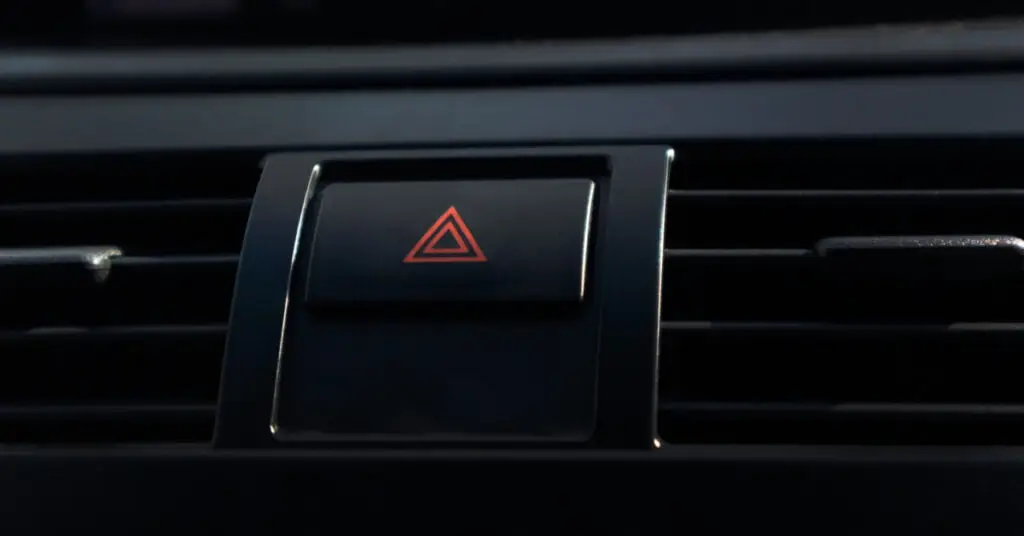
It was a Tuesday at dusk. I was driving home after running an errand like I had done many times before. There was nothing unusual about that evening, and very little traffic. I don’t like that time of day: after the sun has set but is not dark yet, also known as the late blue hour or late dusk. I remember thinking about how to spend the last days of December and the promises and opportunities every new year brings. I focused on the immediate future, my thoughts shifting to dinner. I had come to a stop sign, made sure – as I have always done – the road was clear, and crossed the main thoroughfare to the other side.
Boom.
The piercing noise of metal on metal, followed by a never-ending screeching as my car was pushed sideways up the slight incline. My body flung across the cabin and snapped back into the seat, an explosion of pain. The whooshing sounds of airbags deploying laterally slapped my confused face as I found myself upright, unable to move as if frozen in time. The car came to rest on the curb, almost gently. I had been T-boned.
Silence.
I thought I had died. As they say, your entire life indeed flashes before your eyes. I became aware of the erratic blinking lights on the dash in front of me, slowly coming back into focus. My ears rang loudly in a tone I had never heard before, akin to a deep whining lamentation – a crescendo of unfamiliar and unnerving sounds. Then the automated voice announced, “Warning. Collision.” A robotic insight that my brain had not processed yet.
Silence.
“I am not dead,” I thought then. “Or am I? When you die, is this where it starts? Picking up from the last thing you remember?” I could not see anything but a wooden fence in front of me. I rationalized that I had survived an impact, but that could change in seconds. The car was crossways in the road and the dark. I could be hit again. And not survive that time. I reached for the hazard warning lights button and was taken aback by the slowness of my hand extending laboriously, in contrast with the need for quick action in my brain. I pushed the button.
Silence.
I looked for my phone, alarmingly aware that the communication between my brain and my limbs felt short-circuited, all sense of time and space seemingly lost. As I found the phone, I heard a voice behind the driver’s door. “Are you OK?” I didn’t recognize the voice and thought, “I’m not alone.” I answered, “I cannot open the door,” voicing my unsuccessful attempt at getting out of the vehicle.
Not silence.
What followed is a fragmented awareness of moments. A good Samaritan called emergency services and stayed with me until they arrived, holding my hand. I called my wife, telling her I had been in an accident and where I was (a few blocks from home). Emergency personnel got me out of the vehicle and checked on me. The driver who hit me was shaken, as concerned for me as I was for him. I was relieved to see he was on his feet, not visibly injured. We both counted our blessings: we were alive. Flashing lights, voices, cold air – for a very long time. I remember the oddest details, which I perceived to be interminable moments in slow motion. The colors of cars driving around the scene, the smell of someone’s cologne, and the crunching sound of boots, to mention a few.
As the adrenaline wore off, I became aware of the pain in various parts of my body. I knew almost immediately that at least I had broken my hand; a few ribs had cracked; my head hurt, and in my ear, I kept hearing sounds like a washing machine during the spin cycle. Most of all, I heard emergency personnel and bystanders saying that I should not have survived that, such was the impact concentrated on the driver’s door. I remember shaking my head and thinking, “You are verbalizing what I felt. I cannot believe I am not more seriously hurt or, yes, dead.”
I had been in previous car accidents as a passenger over three decades ago. Never as a driver. I never had a citation or a traffic ticket. The night’s shock did have (and continues to have) consequences in the following weeks. Besides the physical injuries (broken and cracked bones, torn ligaments, bruises, spasms, and tremors) requiring healing, rehabilitation, and tender loving care, nightmares have become the norm, and anxiety flares; erratic thoughts crowd my mind more than ever – all things connected and identified as Post-Traumatic Stress Disorder (PTSD). I cannot say I was surprised, but it felt – and feels – as if my life “train” had derailed. It will get back on track sooner or later, yet it will never feel the same.
We all go through challenging moments at some point; very few people are lucky not to experience sudden trauma, no matter the width, breadth, length, circumstances, or outcome. This was one more transformative trauma for me. Always the one to caution her loved ones to take care of themselves because the world out there is wild, I found myself in suspended thought and outright shock long enough to renew my invitation: never take anything for granted, not even your next breath. Tell your loved ones, family, and friends you love them every day. Be mindful and conscious, and most of all, be grateful always.
